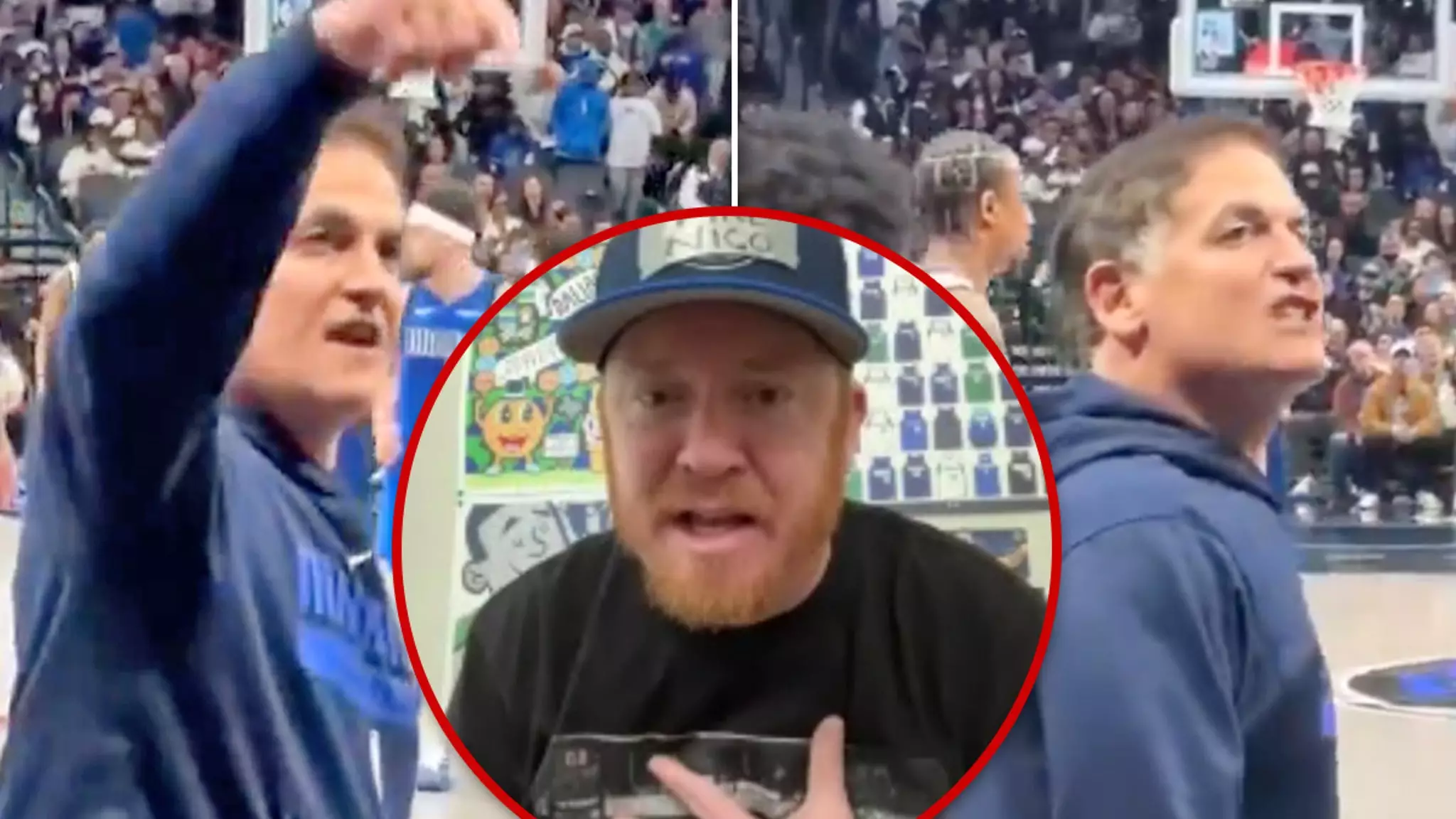A recent incident at a Dallas Mavericks game has stirred significant debate about fan rights, the role of team management, and the complexities of crowd behavior during live sports events. Chris Taylor, a Mavericks season ticket holder, found himself at the center of a controversy after being ejected from a game for attempting to rally fans against team management. This event underscored the often fraught relationship between passionate supporters and the executives who guide their beloved teams.
On a Monday night showdown against the Sacramento Kings at the American Airlines Center, Taylor’s discontent with the Mavericks’ recent trade—specifically, the controversial deal that sent star player Luka Dončić to the Los Angeles Lakers—prompted him to lead an anti-Nico Harrison chant. His actions drew the attention of Mavericks owner Mark Cuban, who confronted Taylor directly from his courtside seat. The ensuing verbal exchange escalated, leading to intervention from arena security, who deemed Taylor’s behavior as disruptive.
In the aftermath of the confrontation, Taylor expressed a sense of injustice, claiming that his rights as a fan were violated during the incident. According to his account, security threatened him with forceful removal, stating he could either leave willingly or be “dragged out.” Such a communication raises critical questions about the extent to which teams can impose their will on fans without infringing on their rights to express opinions and feedback, even when conveyed passionately.
Despite the Mavericks’ assertion that Taylor was uncooperative and acted in contradiction to the NBA Fan Code of Conduct, he maintains that it was Cuban who spoke out of turn. In the world of professional sports, where emotions run high, fans often feel an attachment to their teams that can blur the lines of acceptable behavior. Yet, the notion that fans who voice dissent might face suppression by security—or officials—raises alarm bells about the treatment of supporters who seek to engage in dialogue or protest.
Taylor is now considering legal action against the Mavericks, an option that underlines the serious nature of the incident and the potential repercussions for how fans are treated. His intentions to explore legal avenues indicate a growing trend of individuals feeling empowered to challenge institutions they perceive as dismissive or oppressive. The core of this invites broader discussions about free expression within the context of sports, where the emotional investment fans embody is often at odds with corporate interests.
While Taylor remains intent on attending future games, his experience may serve as a cautionary tale for both fans and franchises. It highlights the need for a delicate balance: teams must maintain crowd decorum while respecting the passionate expressions of their supporters. The Mavericks case exemplifies how a seemingly straightforward altercation can reveal deeper issues within the fan-executive dynamic, encouraging all stakeholders to rethink how disagreements should be managed within the realm of professional sports.

